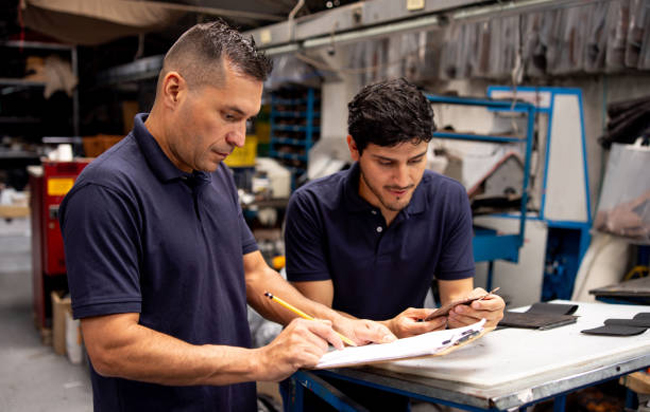
In the world of fashion and footwear, the quality of a product is not just a selling point—it’s a brand’s reputation at stake. For private label shoe factory brands, where the name on the box may be new or unfamiliar to customers, ensuring top-notch quality is essential to gaining trust and building a loyal customer base. In a market crowded with choices, the difference between a one-time buyer and a repeat customer often boils down to the quality of the shoes they receive.
Private label manufacturing allows brands to create unique, customized footwear without the need for their own production facilities. While this model offers significant advantages in terms of flexibility, creativity, and cost savings, it also comes with its own set of challenges—chief among them is maintaining consistent quality across every pair of shoes produced.
The shoe manufacturing process is complex, involving multiple stages from design and material selection to assembly and final packaging. Each of these stages presents potential points where quality can slip if not carefully managed. This is why robust quality control processes are the backbone of any successful private label shoe production. Without strict quality oversight, even the most stylish designs can fall flat if they are marred by poor craftsmanship or subpar materials.
In this post, we will take you behind the scenes of a private label shoe factory, exploring the intricate quality control measures that ensure every pair of shoes meets the high standards expected by consumers. We will delve into each step of the process, from the initial inspection of raw materials to the final packaging of the product, highlighting the meticulous attention to detail that goes into crafting quality footwear.
Understanding these quality control processes not only gives insight into the manufacturing world but also underscores the importance of partnering with a reliable factory. For brands, especially those new to the private label space, this knowledge is crucial for making informed decisions that will ultimately define the success of their products in the market.
As you read through this detailed exploration, you’ll discover how private label shoe factories maintain a delicate balance between efficiency and excellence, ensuring that every pair of shoes not only meets but exceeds customer expectations. Whether you’re considering launching your own shoe line or are simply curious about how your favorite footwear is made, this guide will provide a comprehensive look at the steps taken to control quality in private label shoe manufacturing.
How Private Label Shoe Factories Control Quality: A Behind-the-Scenes Look
When it comes to private label shoe manufacturing, quality control is paramount. Whether you’re an emerging brand or an established retailer, the success of your product line hinges on the consistent quality of your footwear. Here’s a detailed look at how private label shoe factories ensure that every pair meets the highest standards.
1. Raw Material Inspection
- Material Sourcing: Quality control starts with selecting the best raw materials. Leather, fabric, rubber, and other components are sourced from trusted suppliers. Factories often have strict guidelines and long-standing relationships with suppliers to ensure consistency.
- Material Testing: Before production begins, raw materials undergo rigorous testing. This includes checking for durability, color consistency, texture, and strength. Any material that doesn’t meet the standards is rejected.
2. Sample Creation and Approval
- Prototype Development: Factories create prototypes or samples based on the design specifications provided by the client. These samples serve as a benchmark for quality.
- Client Feedback: The prototype is sent to the client for review. Any adjustments or improvements are made at this stage, ensuring the final product aligns with the brand’s vision and standards.
3. In-Process Quality Checks
- Step-by-Step Inspections: During production, each stage—from cutting to stitching to assembling—is monitored closely. Workers and supervisors perform inspections to catch any issues early.
- Mid-Production Review: Factories often pause production after a certain number of shoes are made to conduct a more detailed inspection. This helps in identifying any systematic issues that might affect the entire batch.
4. Final Product Inspection
- Comprehensive Testing: The finished shoes undergo a series of tests to ensure they meet all quality standards. This includes checking for size accuracy, stitching strength, sole attachment, and overall appearance.
- AQL Sampling: Many factories use the Acceptable Quality Level (AQL) sampling method, where a random sample of finished products is inspected in detail. If defects are found above the acceptable threshold, the entire batch may be re-inspected or reworked.
5. Packaging and Shipment
- Final Inspection: Before packaging, each shoe is given a final check to ensure it meets the brand’s quality standards. Any shoes with defects are removed from the production line.
- Protective Packaging: Shoes are carefully packed using materials that prevent damage during transit. This is crucial for maintaining quality until the product reaches the retailer or customer.
6. Continuous Improvement
- Feedback Loop: After products reach the market, feedback from customers and retailers is collected and analyzed. This feedback is crucial for continuous improvement and helps factories refine their processes.
- Ongoing Training: Workers and supervisors undergo regular training sessions to stay updated on the latest quality control techniques and industry standards.
Conclusion: The Impact of Rigorous Quality Control on Private Label Shoe Success
Quality control is not just a process; it’s the foundation upon which the success of any private label shoe brand is built. As we’ve explored in this post, every step in the manufacturing process—from raw material selection to final inspection—plays a crucial role in ensuring that each pair of shoes meets the highest standards. For private label brands, where the product must speak for itself in a competitive market, maintaining exceptional quality is not optional—it’s a necessity.
The journey from concept to finished product is complex, involving many variables that can affect the final outcome. A single flaw in materials, design, or craftsmanship can have a ripple effect, potentially tarnishing a brand’s reputation and losing customer trust. This is why private label shoe factories invest heavily in rigorous quality control measures, employing skilled workers, advanced technology, and systematic inspections at every stage of production.
The dedication to quality control is what separates successful private label brands from the rest. When consumers receive a pair of shoes that exceed their expectations—shoes that are not only stylish but also comfortable, durable, and well-made—they are more likely to become repeat customers and advocates for the brand. On the other hand, poor quality can lead to returns, negative reviews, and a damaged reputation that can be hard to recover from.
Moreover, consistent quality is what allows private label brands to stand out in a crowded marketplace. In an industry where consumers are inundated with choices, a commitment to quality can be the defining factor that sets a brand apart. It’s the difference between a brand that is seen as reliable and one that struggles to gain a foothold.
For brands considering entering the private label shoe market, understanding the quality control processes of potential manufacturing partners is crucial. It’s not enough to have a great design or marketing strategy; without a solid quality control process, even the best ideas can fall short. By partnering with a factory that prioritizes quality at every stage, brands can ensure that their products not only meet but exceed consumer expectations.
In conclusion, the success of a private label shoe brand is inextricably linked to the quality control processes that underpin production. From the first prototype to the final product on the store shelf, every detail matters. The investment in quality control pays off in the form of customer satisfaction, brand loyalty, and long-term success. As the private label shoe market continues to grow, the brands that prioritize quality will be the ones that thrive, building a reputation for excellence that resonates with consumers for years to come.
By choosing the right manufacturing partner and committing to a stringent quality control process, private label brands can confidently step into the market, knowing that their products are crafted to the highest standards—shoes that not only meet the demands of today’s discerning consumers but also help to establish a brand’s identity and trustworthiness in a highly competitive industry.
